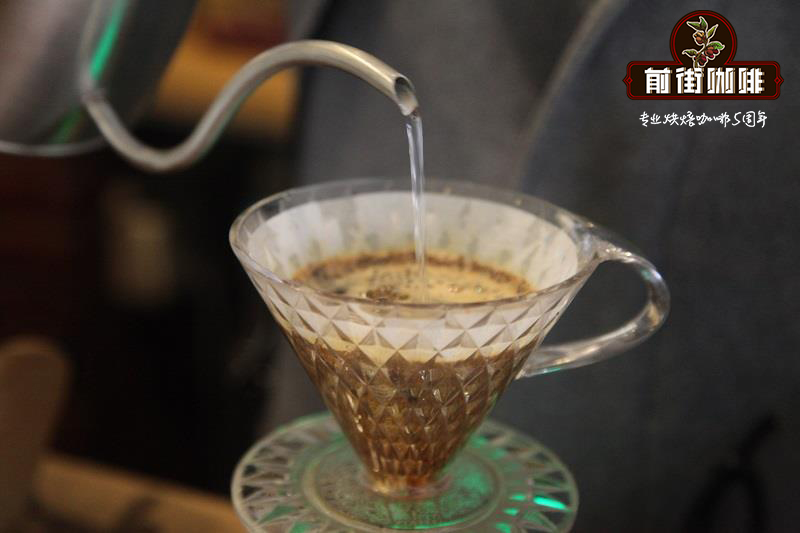Papua New Guinea Coffee introduction to Baroda Manor, Papua New Guinea

Professional coffee knowledge exchange more coffee bean information please follow the coffee workshop (Wechat official account cafe_style)
Located in the southwest Pacific Ocean, Papua New Guinea is a volcanic belt around the Pacific Ocean. It belongs to volcanic geology and has fertile soil. It is an important natural condition for giving birth to good coffee.
Although it has a good environment, the share of coffee beans in the world is not high, only 0.7%. Coffee is very important to Papua New Guinea and is the only cash crop in the highlands. 40% or more than 2 million small farmers in the country depend on coffee beans, which is a very important source of livelihood.
Most of the coffee beans in Papua New Guinea are grown in the highlands, and the proportion of Arabica is as high as 95%. The coffee beans in Papua New Guinea are mainly sun-dried after washing and fermentation before treatment, and the main varieties are bourbon, Arusha and Mon Donovo.
In Pakistan, important coffee producing areas are East Highlands, Enga, West Highlands and Chinbu provinces, most of which are 1200-1900 meters above sea level, with a Central American style. If the production system is dominated by small farmers, a few have large estates or government-specific support programs. The coffee beans of Papua New Guinea have been respected by many people in recent years because of their solid taste, low acidity and clean flavor, which is in line with the Asian preference for coffee, and is a rising producer of Asian coffee.
Baroda Manor is located in the eastern highlands of Papua New Guinea, at the top of the Lamari Valley in the Jabarra Mountains, founded by Ben Colbran. Ben bought the land from indigenous Taro in the 1960s, and they were almost the first to grow crops in the valley. The plantation, covering an area of 220ha and planting about 1 million coffee trees, is the only coffee farm owned and operated by foreigners in Papua New Guinea.
In 1965, the government encouraged the early settlers to start growing coffee as a long-term crop. Ben began to grow coffee trees on the Baroda estate and became the first coffee producer in the Eastern Highlands and began to export its output abroad. The whole park is divided into 26 blocks, and the exact variety and daily production process of each planting area are tracked by the target of GPS. The Colbran family is now in the third generation, run by Ben's son Nickel and grandson Chris. In addition to the output of the manor itself, Barodashan has integrated the production resources of small estates and small farmers around the estate to establish a larger supply chain network. After more than 50 years of cooperation with manors and small-scale farmers in this producing area, the Colbran family has gone from guiding agricultural technology and promoting the coffee industry to building bridges, roads and schools in recent years, which has won the general respect of the residents of the Lamari Valley and opened up the market for them to sell their products. For the past 20 years, the Colbrans family has acted as acquisition agents for large multinational traders, ensuring a sustained and stable supply of high-quality coffee through direct trade, which is still commendable and is undoubtedly one of the best and unique coffee farms in Papua New Guinea.
Important Notice :
前街咖啡 FrontStreet Coffee has moved to new addredd:
FrontStreet Coffee Address: 315,Donghua East Road,GuangZhou
Tel:020 38364473
- Prev

Salvadoran coffee introduction to Salvadoran bluebell manor coffee.
Professional coffee knowledge exchange more coffee bean information please follow the coffee workshop (Wechat official account cafe_style) 2010 El Salvador CoE winning Manor bluebells Manor (La Campanula estate) is an ultra-high altitude manor in El Salvador, more than 1650 meters above sea level, 2010 winning batches, even planted in 1750 meters high environment, 2
- Next

Kenyan Coffee Kenya Chechafani Gichathaini Manor
Professional coffee knowledge exchange more coffee bean information please follow the coffee workshop (Wechat official account cafe_style) Kenya, a giant in the coffee market, is also a model country for producing fine coffee beans. Kenya is located within 5 degrees north and south latitudes, with many highlands, which is a prosperous region for agriculture in Africa. Low latitude, high altitude, fertile soil, with the best varieties of coffee grown
Related
- Does Rose Summer choose Blue, Green or Red? Detailed explanation of Rose Summer Coffee plots and Classification in Panamanian Jade Manor
- What is the difference between the origin, producing area, processing plant, cooperative and manor of coffee beans?
- How fine does the espresso powder fit? how to grind the espresso?
- Sca coffee roasting degree color card coffee roasting degree 8 roasting color values what do you mean?
- The practice of lattes: how to make lattes at home
- Introduction to Indonesian Fine Coffee beans-- Java Coffee producing area of Indonesian Arabica Coffee
- How much will the flavor of light and medium roasted rose summer be expressed? What baking level is rose summer suitable for?
- Introduction to the characteristics of washing, sun-drying or wet-planing coffee commonly used in Mantenin, Indonesia
- Price characteristics of Arabica Coffee Bean Starbucks introduction to Manning Coffee Bean Taste producing area Variety Manor
- What is the authentic Yega flavor? What are the flavor characteristics of the really excellent Yejasuffi coffee beans?

